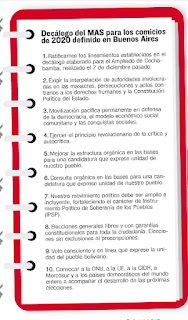I read António Costa Pinto's new book, Latin American Dictatorships in the Era of Fascism: The Corporatist Wave (2019), which examines corporatism and dictatorship in the 1930s. Given the experiences of Jair Bolsonaro and even the coup government in power now in Bolivia, it is a topic and era worth revisiting.
The 1930s was a time of political experimentation, with elites sometimes equally fearful of electoral democracy and Marxism. Corporatism offered a third way.
During the 1930s, social corporatism became synonymous with the forced unification of organized interests into single units of employers and employees that were closely controlled by the state and which eliminated their independence: especially that of trade unions. Social corporatism offered autocrats a formalized system of interest representation to manage labor relations, legitimizing the repression of free labour unionism (p. 2).
Political corporatism is where these state-controlled units replace representative institutions. The collective as defined by the state eliminates individualism, which is unpredictable and therefore undesirable.
Corporatism was diffused globally during the 1930s. Many saw it as the best alternative to the ills of socialism and liberal democracy. This line of thinking was especially strong in the Catholic Church. The church was, Costa Pinto argues, the first vehicle for diffusion of corporatism in Latin America, as it countered secularism and communism. The economic crash of the late 1920s opened the door in Latin America for modeling Portugal, Spain, and to a lesser extent Italy (the church preferred the Iberian models). Between 1930 and 1934, there were 13 successful coups in the region in an authoritarian wave.
There was significant variation in Latin America, with some more fascist than others, some more social than political. This variation held within countries as well.
He looks at the corporatist experiences across the region with short case studies. What we see is variation and inconsistency. Sometimes it lasted only a short time and faced major opposition. Sometimes there was only a fascist flavor or influence, as in Bolivia, where there was "military socialism with a fascist overtone" (p. 58). Other examples, like the Estado Novo in Brazil, went further in consolidating a corporatist state, though the military overthrew Vargas when he shifted toward populism. And then there was Lázaro Cárdenas, who built a corporatist political system that didn't resemble anything else in Latin America, with its secularism and progressive social policy. Fascists were opposed to Cárdenas.
Aside from the important role of the Catholic Church, Costa Pinto notes that existing Latin American political parties often prevented consolidation of corporatism, for example blocking the creation of a one-party state. Further, the U.S. government pushed back, so that corporatism could co-exist with declaring war against Axis states.
Final note: this book could have used some better proofreading, given its misspelling of names. The author gives special thanks to
"Kurk" Weyland, for example.
Read more...








